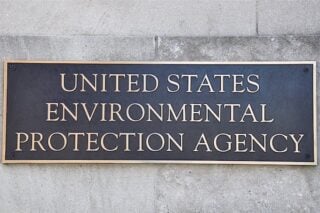A report on Quebec’s asbestos industry by Concordia University’s John Molson School of Business lecturer John Aylen is currently being reviewed by the university. This occurred after Senior Advisor of Rideau Institute in Ottawa, Kathleen Ruff, co-signed a letter to the university President, Alan Shepard, requesting the report be retracted.
The report was commissioned by Concordia’s Luc Beauregard Centre of Excellence in Communications Research at the same time as another report that explores shale gas development in Quebec.
Ruff and a group of ten scientists and human-rights advisors said Aylen’s report was “replete with inaccuracies and bias.” Aylen’s original intent was to decide whether “there can be meaningful dialogue and consensus when facts come up against feelings.”
According to the letter, the report uses incorrect information about the risks of asbestos, dismisses reputable scientific evidence and purposefully does not include vital facts.
When it comes to public opinion, Alyen claims facts will never win over feelings. He uses the events leading up to the Quebec government canceling the $58-million loan planned for the Jeffrey Mine to support his case.
“Opposition based on strongly held feelings can rarely be swayed by logic or facts, and this was proven in the Quebec experience,” Alyen stated in his report.
The conclusion proposes guidelines as to how proponents of debatable products or industries like asbestos can handle opposition. The final guideline is to “hold the highest standards of integrity and transparency.”
Apparently, Alyen has a history of supporting the asbestos industry, speaking and writing on its behalf during his time working as a paid spokesman for Baljit Chadha – Jeffrey Mine’s leader in its expansion.
Alyen’s “About the Author” section in the report does not mention the relationship with Chadha. In the report, Alyen thanks Chadha, who is instead identified in the report as alias “Barry Smith,” for his “gracious and generous contributions” as the “leader of the consortium to purchase the mine” who had been “exporting chrysotile to India for several years.” He “wholeheartedly endorsed and supported this exercise in a true spirit of constructive analysis and forward sightedness.”
“It’s so shocking that a university would be putting forward work of such an unacceptable caliber and such incredible bias,” said Ruff. “The biggest point is the fact that overwhelming scientific evidence is unanimous in saying that there is no safe level of exposure to any asbestos and all use of it should stop.”
According to the university, the study was created “to better understand coalition-building and the public engagement process around important societal causes and issues.”
“Members of our community publish thousands of pieces annually, and in the spirit of academic freedom, they can do so on any topic or issue,” said university spokesperson Clea Desjardins. “We will look into this matter thoroughly.”





